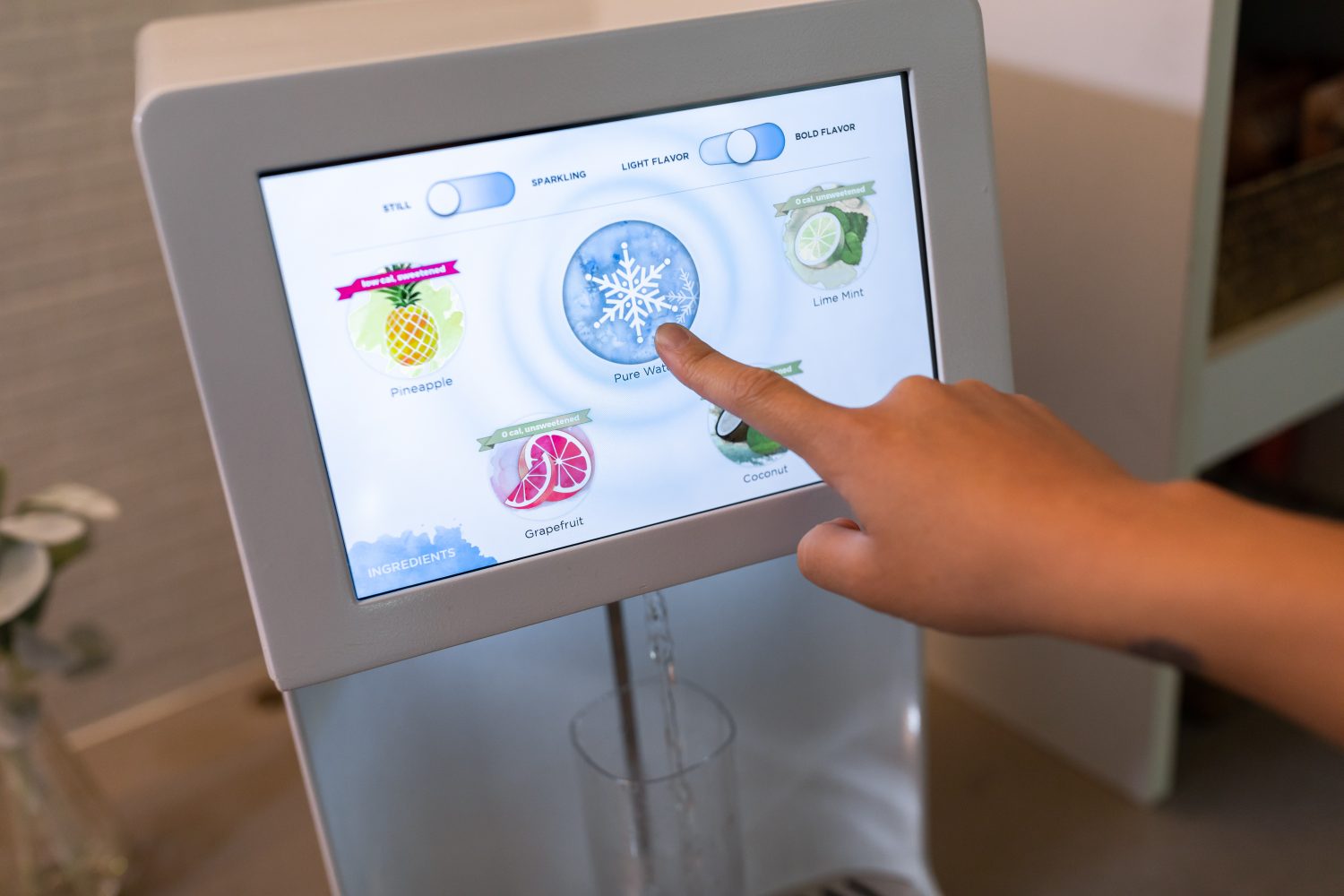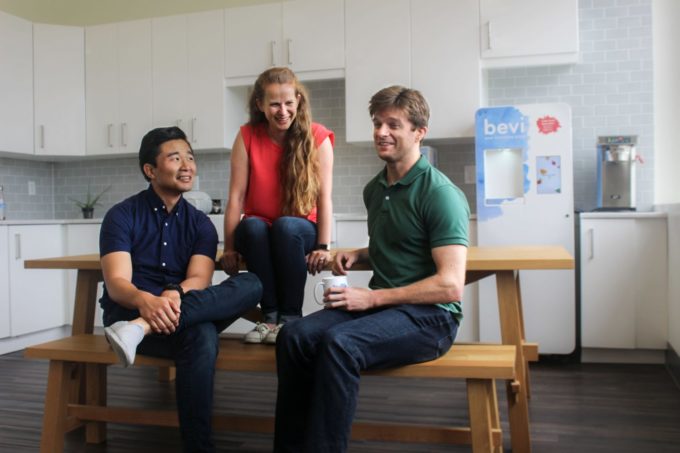The Bevi co-founders realized that when it came to bottled water, people’s behavior didn’t make economic sense: They were paying a high markup when they could get the same thing from their taps.
“Buying a single-use, plastic bottle of water, it’s not an economic decision,” explains Bevi Co-founder Sean Grundy. “That knowledge gave us a lot of confidence. We knew we had economics on our side. People can’t be making the choice to drink bottled beverages as a rational, cost-saving choice—it’s got to be either a result of convenience or a result of brand, the conception that beverages in single-use, plastic bottles are higher quality, or the result of some kind of misinformation, like fear of filtered tap water. And those were areas where we thought we could compete.”
They were right. Bevi machines have served over 100 million bottles’ worth of water and seltzer since the company’s founding, a number that’s now growing by more than 10 million each month. Bevi has machines in dozens of states and employs about 120 people.
The internet-connected machines mix flavorings into water on-demand, making them the perfect replacement for a fridge stocked with seltzer and bottled water—which saves not only packaging but the fuel needed to deliver beverages. Bevi makes maintenance easy by monitoring the machines’ supply levels and service needs.
Bevi’s where environmentalism and business acumen meet, according to Grundy, who views business as the best way to make environmental advances.

“The idea is that it’s ridiculous to waste fuel transporting water from a bottling plant to wherever it’s ultimately consumed,” Grundy says. “When I met [my co-founder Eliza Becton], she was very passionate about this concept—how to get more people drinking filtered tap water instead of bottled water, and how could we increase the portion of their water and other beverages that they drink in reusable bottles. I got instantly hooked on the concept, just because it made so much sense.”
The Bevi team joined Greentown Labs before officially incorporating, and put one of their first machines in the incubator. Grundy remembers making good friends while at Greentown, and adds that the staff connected Bevi with an investor who went on to finance 20 percent of its seed funding.
“In terms of the value of Greentown, a lot of it came from the community,” Grundy says. “If I would’ve done one thing differently early on, because we really started working on Bevi in June 2013 and then moved into Greentown in August, I would’ve moved into Greentown right in June. At that time we were spending our own cash, but even then, I would’ve moved in earlier. Because once you move into Greentown, and once you’re around other teams working on similar problems, and teams that have, say, taken a prototype to market, it changes your perspective on what you need to get started and it changes your perspective on what progress looks like. It provides this network of people who have done similar things before.”
Greentown Labs is a community of bold, passionate entrepreneurs creating solutions for today’s biggest climate and environmental challenges. Located in Somerville, Mass., the Greentown Labs Global Center for Cleantech Innovation is the largest cleantech incubator in North America, operating a 100,000 sq. ft. campus comprised of prototyping and wet lab space, shared office space, a machine shop, electronics lab, and a curated suite of programs and resources. Greentown Labs is home to more than 90 startups and has supported more than 210 since its inception.

